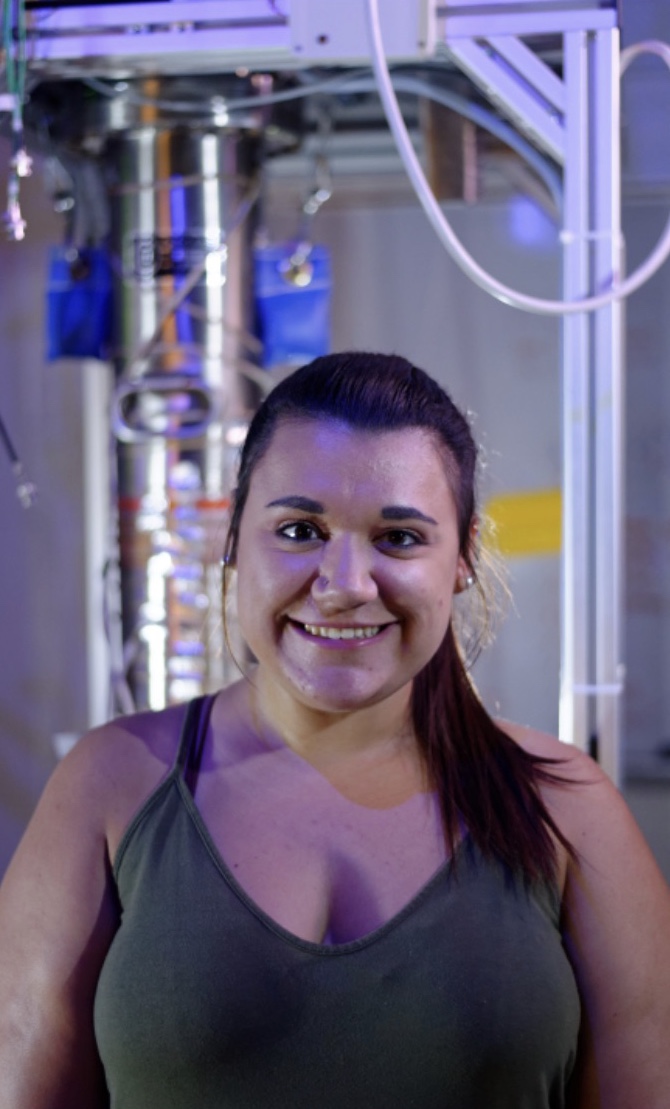Purdue Physics and Astronomy graduate student awarded INSGC fellowship
2021-05-07
Writer(s): Cheryl Pierce

Amanda Depoian is pictured in the Dark Matter Lab at Purdue University. Photo provided by Amanda Depoian.
The Indiana Space Grant Consortium (INSGC) has awarded Amanda Depoian an INSGC Graduate Fellowship. The INSGC is one of the 52 Consortia that are part of the National Space Grant College and Fellowship Program. In the state of Indiana, INSGC is a source of NASA-related information, awards and programs. Depoian is advised by Professor Rafael Lang. He says this fellowship will allow her to work with roughly 25 undergraduate students and involve them directly in her research.
XENONnT is a dark matter direct detection experiment that also has the sensitivity to detect solar and supernova neutrinos. When applying for the INSGC fellowship, Depoian proposed to study low-energy backgrounds in XENONnT and develop a software trigger to search for neutrinos from Galactic supernovae and other astrophysical sources in real-time.
“The INSGC fellowship will allow me to use the XENONnT direct detection dark matter detector to search for supernova neutrinos,” says Depoian. “By understanding detector backgrounds, I will be setting up a software trigger that will send an alert from XENONnT to the Supernova Early Warning System (SNEWS) if more events than expected are observed during a period of time. This alert to SNEWS in coincidence with other neutrino experiments will allow astronomers to observe the supernova outburst as it happens in real-time because neutrinos will arrive on Earth before the electromagnetic signals.”
Lang leads approximately 25 undergraduates from the Purdue Data Mine each semester for research with the Purdue Dark Matter group that he leads. These students will be able to participate in semester long-projects with Depoian working with data from XENONnT to characterize the backgrounds that could mimic a potential neutrino signal from a Galactic supernova. Using the data collected, she will be able to define criteria for what constitutes a supernova neutrino event then design a software trigger which will monitor the data in real-time searching for supernova neutrino candidate events.
“I am excited to be able to participate in this effort as it will allow me to expand the reach of direct detection dark experiments further into other areas of astroparticle physics,” says Depoian.
Photo credit: Amanda Depoian is pictured in the Dark Matter Lab at Purdue University. Photo provided by Amanda Depoian.